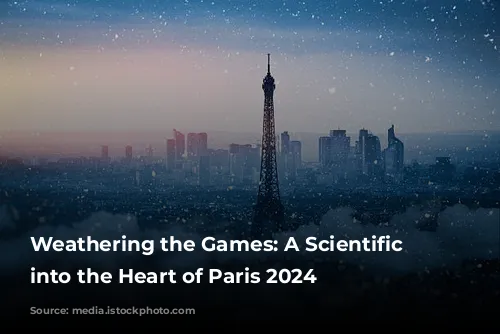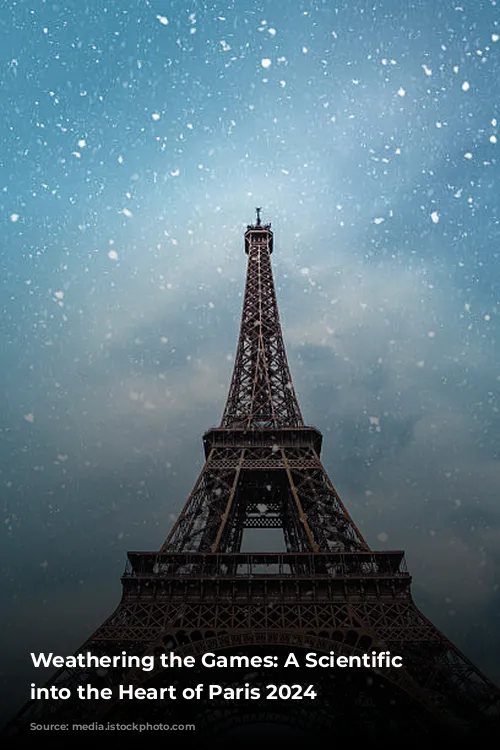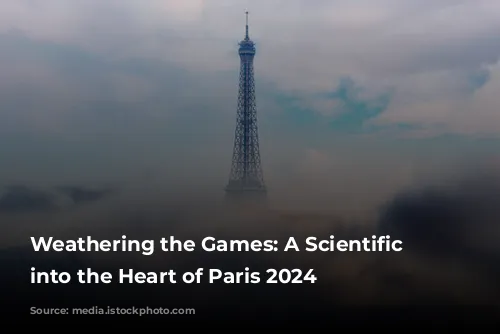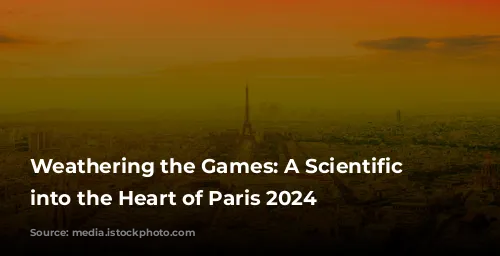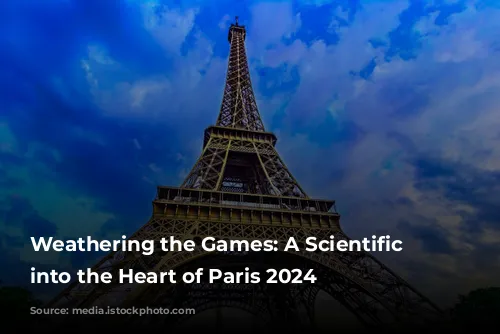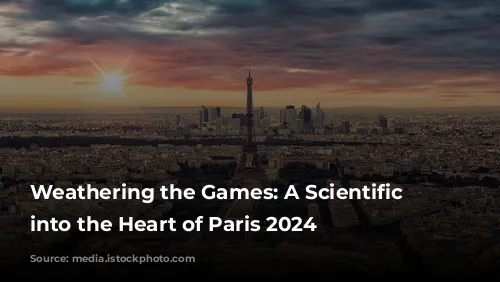Imagine the thrill of the Olympic Games, the roar of the crowd, the sweat of the athletes… But did you know that behind the scenes, a team of scientists is hard at work, weathering the storm to ensure the safety and success of the event?
The Paris 2024 Olympics Research Demonstration Project is a global collaboration bringing together meteorological services and universities from around the world, including France, Austria, Australia, Canada, China, Sweden, the United Kingdom, and the United States. This project, endorsed by the World Meteorological Organization (WMO), aims to advance weather forecasting in urban areas, pushing the boundaries of our understanding of how weather impacts major events.
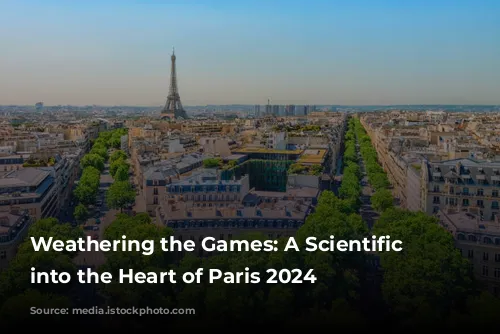
Forecasting the Future: Weathering the Urban Jungle
Weather is a key player in major sporting events. Accurate forecasts and warnings of temperature, humidity, visibility, and wind extremes are crucial for event scheduling, athlete performance, course conditions, and the safety of everyone involved, from athletes to spectators.
The research project will take place in parallel with the regular forecast and meteorological services provided by Meteo-France throughout the duration of the Games. This unique opportunity allows scientists to test and refine their models in a real-world setting.
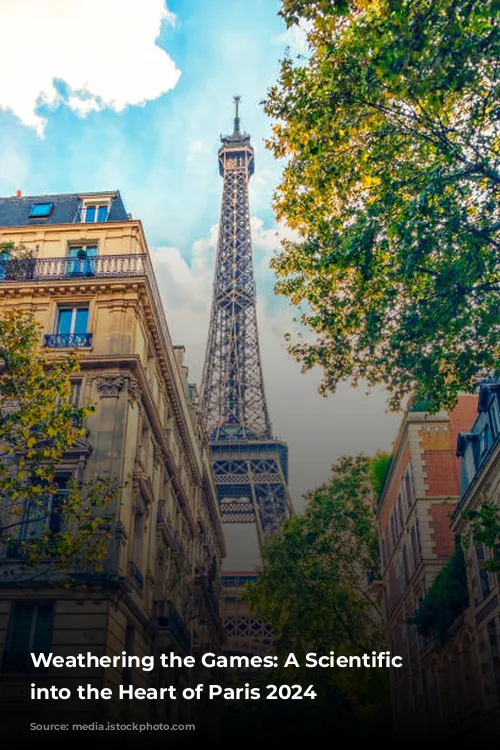
Zooming In: Unlocking the Secrets of Urban Weather
The project will focus on the sites of the Summer Olympics, both around Paris and in the coastal city of Marseilles, where dense urban areas present unique challenges for high-resolution numerical weather prediction.
Dense urban areas with high-rise buildings and concrete infrastructure create a unique microclimate that can significantly alter the weather patterns. This microclimate can lead to increased heat island effects, air pollution, and extreme weather events. These urban challenges are becoming increasingly important as more and more people move to cities.
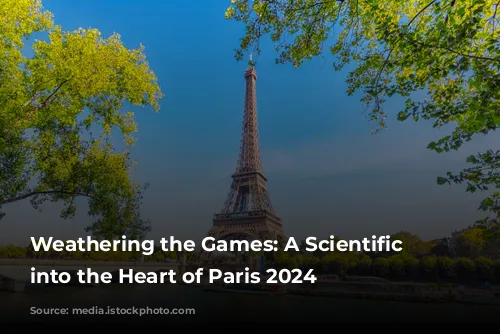
A New Era in Urban Meteorology
Previous Olympic research projects in Sydney (2000) and Beijing (2008) focused on nowcasting (forecasts for the minutes and hours ahead) and predictability of thunderstorms. However, these state-of-the-art models were not designed to handle the complex weather patterns of dense urban areas.
Since then, advances in urban meteorology have enabled scientists to zoom in on the urban environment with unprecedented detail.
The Paris 2024 Olympics research demonstration project is organized around five key scientific questions:
- Nowcasting & Numerical Weather Prediction in cities at about 100m of resolution
- High-resolution thunderstorm nowcasting (probabilistic and deterministic) in the urban environment, Urban heat islands and cool areas, air quality, in cities
- Nowcasting and forecast in coastal cities (for the Marseilles site)
- Big data, non-conventional data, and their uses
- How to deliver tailored weather, climate, environmental information at infra-urban resolution?
The project will explore the intricate interactions between the atmosphere and the Earth’s surface, including urban areas, mountains, valleys, coastlines, and land-water interfaces. This will help scientists develop more accurate predictions of small-scale weather events like thunderstorms, fog, urban heat islands, sea breezes, and mountain-induced precipitation.
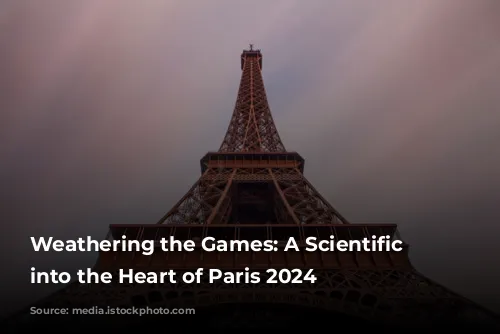
A Three-Pronged Approach: Tackling Urban Challenges
The research project is divided into three main focus areas:
Air Quality Group
Air quality is a critical concern in urban areas. Atmospheric pollutants, such as nitrogen oxides and particulate matter, can have serious health impacts. The Air Quality Group will use detailed modeling to better understand the spatial heterogeneity of air pollution in urban areas.
Two intercomparison exercises will be conducted:
- Regional concentrations during summer heat episodes, when ozone concentrations are high.
- Local urban concentrations.
High Resolution Modelling (Intercomparison)
Nearly real-time forecasts will be generated by seven different centers using seven hectometric models (with a 100m horizontal resolution). These models will be analyzed daily during the Games, providing valuable insights into the strengths and limitations of hectometric models compared to kilometric and global scale models.
Social Science Study
This study aims to improve our understanding of how forecasters communicate their information to decision-makers during large sporting events. It will explore how forecasters formulate their advice and how this information is used to make informed decisions about event scheduling and safety protocols.
The Social Science Study will collaborate with the “Heat and Health in Cities” project to understand the impact of extreme heat on human health and the need for stakeholder information.
By combining scientific expertise and a collaborative approach, the Paris 2024 Olympics Research Demonstration Project aims to pave the way for a more resilient future, where weather forecasting can help protect our cities and ensure the safety and success of events like the Olympics.
